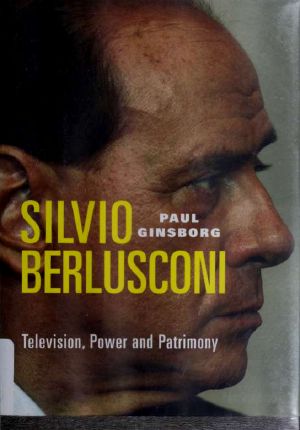Silvio Berlusconi · Television, Power and Patrimony

- Authors
- Ginsborg, Paul
- Publisher
- Verso
- Tags
- political science , biography , autobiography , contemporary politics - europe , politics , international relations , c 1990 to c 2000 , political leaders & leadership , mass media , history , silvio , political aspects , european history: postwar , 1936- , historical - general , from c 1945 - , 21st century , general , business , berlusconi , television and politics , politics and government , presidents & heads of state , italy , biography: general , mass communication media and society
- ISBN
- 9781844675418
- Date
- 2003-01-01T00:00:00+00:00
- Size
- 0.37 MB
- Lang
- en
Includes index;Buildings -- The making of a television empire -- Into politics -- Right and left : 1996?-2001 -- Berlusconi's project -- In power -- Resistances -- Postscript;Mode of access: Internet
Buildings -- The making of a television empire -- Into politics -- Right and left : 1996?-2001 -- Berlusconi's project -- In power -- Resistances -- Postscript
Silvio Berlusconi, a self-made man with a taste for luxurious living, owner of a huge television empire and the politician who likened a German MEP to a Nazi concentration camp guard—small wonder that much of democratic Europe and America has responded with considerable dismay and disdain to his governance of Italy.
Paul Ginsborg, contemporary Italy’s foremost historian, explains here why we should take Berlusconi seriously. His new book combines historical narrative–Berlusconi’s childhood in the dynamic and paternalist Milanese bourgeoisie, his strict religious schooling, a working life which has encompassed crooning, large construction projects and the creation of a commercial television empire–with careful analysis of Berlusconi’s political development.
While highlighting the particular italianita of Berlusconi’s trajectory, Ginsborg also finds international tendencies, such as the distorted relationship between the media system and politics. Throughout, Ginsborg suggests that Berlusconi has gotten as far as he has thanks to the wide-open space left by the strategic weaknesses of modern left-wing politics.